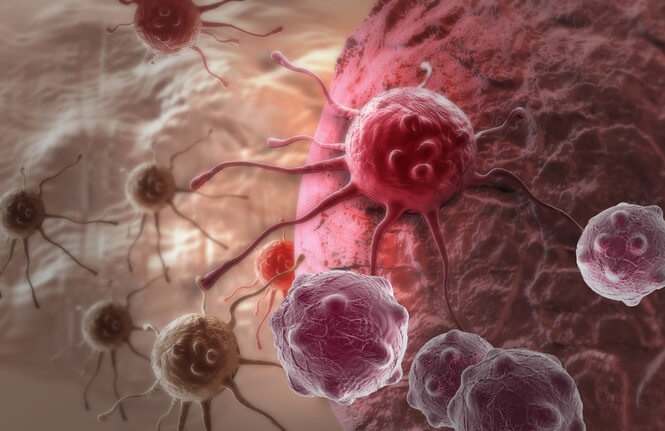Weight loss is a common symptom of disease. Sudden weight loss is called wasting or cachexia (the latter term is more often used to refer to extreme exhaustion). Moderate weight loss can be not only a symptom of the disease, but also a variant of the norm, due to the constitutional features of the body, for example, in people with asthenic body type.
The basis of weight loss may be insufficient or malnutrition, impaired absorption of food, increased breakdown of proteins, fats and carbohydrates in the body, and increased energy consumption (exogenously and endogenously caused). Often these mechanisms are combined. In various diseases, the time of occurrence, severity and specific mechanisms of weight loss are significantly different.
Reasons for weight loss
The causes of weight loss can be both external factors (restriction of food intake, injuries, infections) and internal (metabolic disorders, digestion and absorption of nutrients in the body). What diseases cause weight loss:
The weight of each person fluctuates depending on the quantity and quality of food, hormonal status, physical activity. Weight loss (losing weight) is often a beneficial process, but if it starts suddenly and for no apparent reason, this is a symptom of a serious illness, the cause of which must be investigated. Rapid weight loss is often seen with a strict diet, an inability to eat (for example, after surgery or during a serious illness), or a lack of appetite. However, it happens that the reasons are not so obvious, and it is necessary to be examined for food intolerance or pathology of the digestive tract (peptic ulcer, irritable bowel syndrome, enterocolitis, etc.). A person often loses weight also with depression or neurosis.
If you have a tendency to lose weight, make sure you eat right. Eat appetizing meals in small portions often, take your time and chew well. Take precautions in advance so you don't go hungry. For example, when going to places where the likelihood of a normal lunch is low, take food with you. Try not to leave the house without a hearty breakfast. Take a multivitamin and mineral supplement that provides the body with nutrients, including B vitamins and zinc, which also stimulate appetite.
Sudden weight loss
Sudden weight loss or cachexia (wasting) is most often observed due to insufficient or malnutrition, poor digestibility of food, increased breakdown of fats, proteins and carbohydrates in the body, as well as excessive energy consumption.
A sudden loss of body weight can be caused by an energy deficiency, the causes of which are a long-term diet or taking medications for weight loss. Restricted nutrition can cause imbalance throughout the body. And as a result, the body begins to independently look for the nutrients it needs in its reserves.
Factors leading to dramatic weight loss
- Violation of the digestive processes: occurs with colitis, enteritis, hepatitis, liver cirrhosis, pancreatitis, peptic ulcer, atrophic gastritis.
- Restriction of food intake: is the result of intoxication, anorexia nervosa, decreased or loss of appetite, stroke or the presence of a tumor, impaired consciousness in traumatic brain injuries, narrowing of the esophagus or larynx.
- Metabolic disorders: in this case, the processes of destruction (catabolism) in the body prevail over the processes of synthesis. The causes of metabolic disorders can be connective tissue diseases, burns, problems with the thyroid gland, severe injuries, malignant tumors.
- Experiences accompanied by stress: psychological trauma can cause severe weight loss, even if the body is generally healthy. Sudden weight loss during stress is caused by an increase in the level of cortisol (stress hormone).
- Worm invasion.
Besides, sudden loss weight can be a symptom of human immunodeficiency virus (HIV), AIDS and other diseases. Treating individual symptoms, such as sudden weight loss, without identifying a specific disease and making a correct diagnosis is in most cases not correct and can harm your health.
weight loss treatment
Treatment of weight loss should be started as early as possible, preventing the development of severe malnutrition, which is difficult to treat, until the stabilization of clinical, laboratory and somatometric parameters.
First of all, you need to improve nutrition. It should be fractional 6-8 times a day, balanced, contain an increased amount of proteins, vitamins, have sufficient energy value, in combination with drugs that improve digestion and absorption of food.
It is necessary to limit coarse vegetable fiber, exclude fried, salty, pickled foods, alcoholic beverages, spicy seasonings. In case of impaired consciousness, severe nausea, vomiting, enteral nutrition (through a probe) or parenteral (intravenous) nutrition is carried out with special nutrient mixtures.
Questions and answers on the topic "Weight loss"
Hello! This question worries me: a couple of years ago, my weight was 50-53 kg, with a height of 154, while my chest was 88; waist 67; hips 96, no excess was seen anywhere. Then, after a severe course of the flu, I began to lose weight by a couple of kilograms, my periods went off and I just felt unwell. Everything seems to have recovered and returned to normal, but gradually, without doing anything for this, I lost weight to 44 kg with volumes: chest 83; waist 59; hips 87. Build-normal (I mean, bone. Those are not big-boned, rather the opposite). Nutrition is always not very good, I eat selectively, at will, but I do not limit food. Is this height-west-age-body-factors ratio normal, or is there ground for concern? Thank you! According to the body mass index (18.6), you currently have hypotrophy of the 1st degree, which should be worried. Your ideal mass body is - 51.3 kg. If you lost up to 44 kg in a short period of time and at the same time you were not fond of active physical exercises, then I strongly recommend that you contact your local doctor to undergo a complete examination of the body, since such symptoms can cause serious illness. Hello. The question is about my mother. She is 52 years old. She is now in menopause (more than a year). The problem is that she has lost a lot of weight. Previously weighed 63-64 kg, now weighs 56 kg. Recently, the changes have stopped, but her condition is depressed, often weakness, anxiety, often crying over trifles. They took blood tests: general, for hormones, all tests are in order. What is it can be and to what specific doctor you will advise to address? The local therapist prescribed sedatives, such as Gedazepam. While she drinks, the condition stabilizes, as she stops drinking, it becomes worse again. I am very concerned about weight loss. Could this be related to the menopause? Thank you in advance. Hello! Your mother's condition may be related to hormonal changes in the body, characteristic of her age. Perhaps in this situation, you can not do without the help of a psychologist. Hello. Is weight loss during pregnancy normal? Slight weight loss during pregnancy early dates can be considered a variant of the norm. However, with vomiting that repeats more than 4 times a day, and with a sharp deterioration in well-being, you should consult a doctor. There is no need to be afraid of hospitalization, the unfavorable period will soon end, and the child will be healthy. If there has been a sharp loss of several kilograms, then do not be afraid to tell the doctor about it. His task is to find the cause and do everything so that mom and baby are healthy. It is recommended to regularly weigh yourself, visit a doctor, take tests and conduct the necessary examinations (ultrasound, dopplerography) to be sure of the normal development of the fetus. A weight loss of 1-2 kg in the last weeks of pregnancy is a sign of an early birth. After giving birth, I stopped breastfeeding in August 2013, menstruation came in November 2013, the cycle was established on average 34 days. When four cycles had passed, I, with a height of 164 and a weight of 80.9 kg, began to lose weight according to the "minus 60" system. For 1.5 months, 7 kg has already gone, but the periods have disappeared, now the 29th day of delay, the tests are negative. I believe that this is due to a sharp weight loss. How long can you wait before going to the doctor? Can I prescribe duphaston myself? Healthy weight loss, which does not negatively affect the woman's body, including disruption of the reproductive system, is 10% of body weight within 3 months. So, with a weight of 81 kg, you could lose 8 kg during this period, but you lost almost the required weight in half the time. Considering that before that you went through two serious energy stresses - pregnancy and lactation, then the reaction of the body is quite understandable. So far, there is no need to take any medication. Try to improve your diet, making it healthy and balanced. You can continue to exercise, but not intense. If there is no menstruation for 3 months, go to the doctor, rule out pregnancy, and then you can use one of the artificial menstruation calling schemes. Diagnosis - chronic hepatitis C. Biochemical analysis of blood - all parameters are within the normal range. But for some time, an inexplicable sharp weight loss began with a normal appetite and a healthy lifestyle and diet (up to 800 grams per week). Weight 47 kg with a height of 170 cm. What tests should be taken or what examination should be done to establish the cause? Thank you. I would advise taking tumor markers, especially alpha-fetoprotein, as it is considered organ-specific for liver diseases. And so come the ultrasound of the organs abdominal cavity and to hand over the analysis on PTSR gep. C - i.e. control how the virus behaves in quantitative terms (analysis for HCV gives only a qualitative assessment). And, of course, contact an infectious disease specialist. Hello. I am 16 years old. After weight loss, menstruation disappeared, the doctor prescribed to drink 2 menstrual cycles of Regulon or Novinet. Please tell me which is better? I really don't want to gain weight again. Thank you. In this case, if there was a failure of the menstrual cycle against the background of a sharp change in diet and weight, menstrual irregularities are possible. In such a situation, any of these drugs is suitable. These funds will not lead to weight gain with short-term use. I advise you to adhere to the opinion of your attending physician, who examined you, is familiar with the results of your studies and anamnestic data. Tell me, please, I lost weight after pregnancy and breastfeeding, and I can’t restore it in any way, I eat balanced. The thyroid gland has always been reduced. What thyroid hormones should be tested? Thyroid dysfunction may be one of the causes of weight loss. I recommend that you do an analysis for thyroid hormones: TSH, T3, T4 and antibodies to TPO.Common causes of weight loss in men and women
Often men and women lose weight for the following reasons:If we take diseases, most often, weight drops due to neuropsychiatric conditions, hormonal disorders and cancer. We also list diseases in which weight loss is not so great, but still noticeable:
- kidney disease;
- liver disease;
- lung diseases.
Causes of very rapid weight loss
In addition to the above, rapid weight loss may have other, not so common reasons. These include:- diseases of the gastrointestinal tract;
- HIV infection;
- anorexia (see also -);
- heart failure;
- weight loss as a side effect of medications.
Weight loss during pregnancy
Most often, women lose weight dramatically due to malnutrition or malnutrition. All this provokes a metabolic disorder, and the weight begins to decrease. However, there are cases of weight loss during pregnancy.When a woman loses weight during gestation, this can be dangerous, both for future mother and for her fetus.
Consider the main reasons why a pregnant woman can lose weight:
In the first trimester
Often pregnant women lose weight in the first trimester due to toxicosis. It manifests itself with bouts of nausea and vomiting, which clearly does not contribute to the appetite of the pregnant woman. Also for these reasons, food is poorly absorbed, and the body is dehydrated. The situation worsens when the psychological state of the pregnant woman is unstable - if she endures stress, depression, or is forced to cope with difficult life circumstances. All of these are reasons for weight loss.If a woman does not suffer from toxicosis in the early stages, but at the same time loses weight, this can be considered normal if she does not feel any pain or discomfort. In any case, you should consult with your doctor.
In the second trimester
During this period, toxicosis is minimally disturbing for a woman, so weight loss is the result of the following reasons:- stress;
- nervous strain;
- dietary restrictions in front of the fear of gaining a lot;
- diseases caused by viruses or bacteria.
If during this period a woman loses weight, you need to consult a doctor, since it is at this time that the most active weight gain of the fetus falls, which is actively developing and growing. There is an increase in the amount of amniotic fluid in the fetal bladder.
In the third trimester
Weight loss in the 3rd trimester is normal, as it is one of the harbingers of imminent labor. An older child compresses the digestive tract, which causes loss of appetite in the expectant mother.
If this period falls during the hot season, then the woman may also lose weight from the heat, as she will sweat actively. Weight loss is a concern if the child is underweight or diagnosed with other medical conditions. Medical intervention is needed.
Rapid weight loss in the postpartum period
Some women complain of excessively rapid weight loss after childbirth. This usually indicates hormonal disorders. Most often - about problems with the thyroid gland. An increase in the production of certain hormones by the thyroid gland leads to rapid weight loss.Everyone knows that during pregnancy it is strictly forbidden to smoke and abuse alcohol, as this has a very bad effect on the fetus. Also, these bad habits are the cause of weight loss in a pregnant woman.
weight loss with pancreatitis
Why do people who suffer lose weight? With this disease, the process of producing enzymes in the pancreas is disrupted. So, in the duodenum (the place where food is digested), enzymes are supplied in insufficient quantities. The process of assimilation of food is disturbed, the body does not receive the necessary substances, and the person loses weight.Due to the lack of such substances, the process of losing weight begins:
- Squirrels - "building" material for all cells of the body.
- Fats - create a fatty layer.
- Glucose - the main source of energy.
- an inflammatory disease of the gastric mucosa, which provokes the bacterium Helicobacter pylori. The defeat of this bacterium leads to disruption of the stomach. Food is poorly digested, which causes a breakdown and lack of energy for normal life. All this is accompanied by weight loss.

Gastritis can cause atrophy of the gastric mucosa. In this case, the glands of the stomach stop working properly. Most often, the inner wall of the stomach is damaged. More precisely, the mucous membrane on it. The production of gastric juice and the protective mucus of the stomach is disrupted. All this interferes with the normal process of digestion and contributes to a person's weight loss.
Weight loss in HIV
Wasting is one of the most common symptoms of HIV infection, affecting patients at all stages of the disease. Weight loss usually occurs when the body burns more calories than it takes in. With HIV infection, this happens for the following reasons:- human metabolism is activated;
- going on Negative influence on the intestines, while its ability to absorb nutrients decreases;
- diarrhea often occurs in which food is not digested properly and is excreted from the body;
- if you feel unwell, concomitant with the disease, the patient does not want to eat;
- regular infections of the oral cavity, in which it is difficult to eat;
- many drugs used to treat HIV cause loss of appetite.
Such a symptom should be taken very seriously, because it may indicate the presence in the body of another disease associated with HIV.
Weight loss in cancer
In oncological diseases, a growing tumor takes important chemical elements from the body - glucose, lipids and vitamins. This leads to metabolic disorders, and then to exhaustion. The state of exhaustion is characterized by weakness, decreased or lack of appetite. In many patients, it is cancer exhaustion that leads to death.Nervous weight loss
It often happens that a person loses weight after a strong nervous strain. The stress that surrounds us at work and sometimes in the family circle has a very bad effect on the body and makes it spend more energy to recover.It has been proven that people lose weight even with a short stressful state. For example, scientists have calculated that when a person jumps with a parachute, he loses 200 kilocalories. The jump lasts a few minutes. What if you are under stress for a long time? All our daily experiences have a bad effect on human metabolism. Psychotherapists believe that the body "perceives stress as a disease" . And react accordingly.

Weight loss in diabetic patients
- a disease due to which there is a lack of insulin in the body, which disrupts metabolism. Very often, diabetes is accompanied by frequent urination, pain in the abdomen and progressive weight loss. Due to the fact that the pancreas cannot produce enough insulin for energy, people with diabetes lose body weight.There are two reasons for this:
- The body stops recognizing the cells that produce insulin. Therefore, the much-needed glucose is excreted from the person, instead of being absorbed by the body. As a result, the patient experiences hunger, bouts of fatigue and drowsiness.
- Lack of insulin makes it impossible to use glucose as energy. Instead, the body burns fat, which leads to weight loss.
Video: What is the reason for sudden weight loss?
The video explains why people lose weight if they have gastrointestinal diseases. The issue of the influence of cancer and thyroid dysfunction on weight loss is also raised:A person can lose weight both for external reasons, for example, when infected with any infections, and for internal ones. These, most often, include metabolic disorders and diseases of the gastrointestinal tract. To restore a healthy state of the body, it is necessary to initially take therapeutic measures aimed at eliminating the root cause.
Sudden and severe weight loss is no less worrisome than weight gain. If a person loses more than 5% of the total body weight every week, this negatively affects the general well-being and appearance. The reasons for losing weight are divided into 2 large groups: general and medical. With common causes, a person can cope on his own or with the help of friends and relatives. As for the second group, one cannot do without the help of medical knowledge. Weight loss associated with diseases of organs and systems is the most life-threatening.
Common reasons for losing weight
It cannot be said that a sharp weight loss can be associated purely with the course of pathological processes in the body. There are other reasons for losing weight. Stress and depression, mental stress, phobias and other problems can provoke weight loss. In addition, the worship of a thin body pushes modern girls to follow diets, exhaustion by physical exertion, and all this, together with the fast pace of life, leads to strong weight loss.
So, the first group of reasons for weight loss:
- eating disorders:
- phobias;
- diets and even hunger strikes;
- transitional age;
- hormonal disruptions;
- dependence on drugs or alcohol;
- increase in physical activity.
Weight can "jump" during sessions and exams, when moving to a new job, when moving to another country or city, when falling in love. Sometimes with hormonal surges, weight can decrease, although most often in female body there is an accumulation of body fat and a set of extra pounds.
10 diseases that cause weight loss
80% of cases of weight loss are due to medical reasons for weight loss associated with impaired functioning of one organ or the whole organism. Be careful and watch your weight. In the event of a sharp decrease in body weight and a deterioration in well-being, you should immediately consult with specialists and undergo a medical examination.
Oncology - cancer does not sleep
When there is a change in the color of the skin or sclera of the eyes, weight decreases, hair falls out, nails break - this is only a small part of the consequences of the first stages of a cancerous tumor. The patient may not yet know that a life-threatening formation is growing in the body. And weight loss can greatly speed up the pathology detection process. Most often, the patient loses weight with the development of malignant tumors of the gastrointestinal tract, liver and pancreas. These diseases can be accompanied by strong weight loss from the first days of the onset of the tumor. As for other types, weight loss may appear after the growth of metastases in the body.
General and first signs of a cancerous tumor:
- non-healing of wounds and ulcers;
- the presence of seals;
- violation of urination and stool;
- hoarseness, cough;
- weakness;
- change in skin color.

Pulmonary tuberculosis
This disease is manifested by a rich clinical picture, one of the first symptoms of which is weight loss. Tuberculosis is considered an intractable disease that can only be fought in the early stages. Other signs of tuberculosis include:
- chest and wet cough;
- attacks of coughing with the release of blood and pus;
- weakness, drowsiness, loss of strength;
- severe sweating;
- chest pain, runny nose.
Tuberculosis cannot be treated on its own, only a stay in a dispensary, under the supervision of doctors and long-term use of medications in the first latent stage, can guarantee a cure. A person dies 2-3 years after the lungs are affected by tuberculosis in case of refusal of treatment.
Diabetes
Another reason for weight loss is diabetes. Exactly first type diabetes provokes weight loss, the second type contributes to obesity. Usually the patient constantly experiences increased appetite, and it is almost impossible to satisfy it, hunger is always present. This is due to an imbalance in blood glucose. During the course of the disease in the blood, there is an increase in glucose and insulin deficiency.
Other symptoms of type 1 diabetes:
- dry mouth and thirst;
- sweating;
- irritability and weakness;
- the presence of constant hunger;
- vision problems;
- frequent urination.

Thyrotoxicosis
This disease is a pathology of the thyroid gland. In the body, intoxication with thyroid hormones occurs with dysfunction of the thyroid gland secreted by these hormones. Also called hyperthyroidism. Weight loss in this disease is associated with an increase in metabolic rate. The patient constantly overeats and at the same time loses weight.
Symptoms of hyperthyroidism:
- intolerance to stuffiness;
- cardiopalmus;
- tremor;
- diarrhea;
- thirst;
- violation of menstruation in women and decreased libido in men;
- attention disorder.
Anorexia nervosa
Anorexia is characterized by a pathological fear of obesity and an eating disorder (intentional) associated with maximum weight loss in the individual. This disease overlaps with bulimia and binge eating. Adolescents and girls under 25 are most susceptible to this disorder, although men can also have problems. It seems normal for patients to refuse food in order to lose weight. This leads to severe depletion of the body, and if this disease is not stopped, it can lead to death.
Symptoms of uneven anorexia:
- fear of getting better;
- sleep disturbance;
- the patient's denial of their fear of being overweight and the presence of a problem in general;
- depression;
- feelings of resentment and anger;
- changing perceptions of family and social life;
- dramatic changes in behavior.
Adrenal insufficiency (hypocorticism syndrome, Addison's disease)
With this disease, the process of producing hormones by the adrenal cortex is disrupted. Types of adrenal insufficiency: chronic and acute, primary and secondary. The disease manifests itself:
- muscle weakness;
- increasing fatigue;
- darkening of the skin (to a bronze color);
- lowering blood pressure;
- craving for salt;
- loss of appetite;
- pain in the abdomen.

Alzheimer's disease
Also called senile dementia. The disease is a loss of neural connections in the brain. It usually affects older people over 65 years of age. Although Alzheimer's disease can develop in early age, after 40 years, if there is a genetic predisposition. Manifested by loss of partial memory and disorientation. Most often, the last events in life fall out of memory, then there is a loss of long-term memory. A person is lost on the ground, ceases to recognize faces, feel emotions, loses acquired knowledge, speech and hearing apparatus are disturbed. The patient may forget to eat, relieve himself, fall asleep or wake up. As a result, a significant body weight is lost, a person cannot exist without additional help from relatives or close people.
Lymphoma (Hodgkin's disease)
This oncological disease is a "growth" of lymphoid tissue, which contains giant Reed-Berezovsky-Sternberg cells. In the first stage, the disease is manifested by an increase in lymph nodes. The cervical and axillary nodes are usually inflamed.
Associated symptoms:
- loss of appetite;
- enlargement (inflammation) and reduction of lymph nodes;
- increased nighttime sweating;
- temperature increase.
Ulcerative colitis
This disease is chronic and is an inflammation of the lining of the colon. Mainly manifested as follows intestinal symptoms:
- pain in the abdomen (cutting, aching, radiating to the left side);
- diarrhea;
- bloating;
- loss of appetite;
- fever;
- disruption of the kidneys and heart.

Bowel obstruction
Violation is caused by narrowing of the lumen of the large intestine and is an advanced stage of cancer. The lumen of the large intestine narrows due to the growth of a cancerous tumor, which blocks the patency of feces and intestinal juices.
It manifests itself with such symptoms:
- stool and gas retention;
- pain in the abdomen on the left side;
- vomit;
- asymmetric bloating (from the side of the large intestine).
The above diseases are accompanied by weight loss and severe weight loss against the background of poor health. Any reasons for losing weight should alert a person. In case of identified violations, you should immediately seek help from specialists. Only timely treatment can serve as an early relief from other consequences of severe exhaustion of the body.
- Back
- Forward
Weight loss is not always desirable and beneficial. Excessive weight loss for no apparent reason can be a warning sign that requires medical attention.
The main mechanisms of weight loss can be as follows:
1. Starvation or malnutrition.2. Reduced absorption of nutrients.
3. Increased needs of the body (load, illness).
Weight loss can be caused by a wide variety of infectious, oncological, gastrointestinal, metabolic, neurological diseases and various nutritional and vitamin deficiencies.
Medical reasons for weight loss include:
1. Anorexia nervosa, or anorexia nervosa. This is a psychogenic illness characteristic of young women, which is manifested by severe weight loss (from 10 to 50% of the initial weight). Patients have hypotension, weakness, muscle atrophy, loss of adipose tissue, constipation, caries, susceptibility to infection, cold intolerance, hair loss, amenorrhea.Patients usually show anxiety about possible weight gain. They can exhaust themselves with loads, induce vomiting after eating, use laxatives and diuretics.
2. Adrenal insufficiency. In this case, weight loss is accompanied by weakness, anorexia, irritability, nausea, abdominal pain, and impaired stool. Skin hyperpigmentation may occur.
3. Cryptosporidiosis. This opportunistic protozoal infection can cause weight loss, watery diarrhea, abdominal cramps, anorexia, nausea, vomiting, fever, and muscle pain.
4. Depression. Severe depression leads to loss of appetite and weight loss. Depression is usually manifested by drowsiness, apathy, fatigue, pessimistic reasoning, a sense of hopelessness, lack of desire for any achievements, and sometimes suicidal thoughts.
5. Diabetes. With this disease, both weight gain and weight loss can be observed. Weight loss can be even with increased appetite. The disease is accompanied by symptoms such as intense thirst, increased urine output, fatigue, weakness, etc.
6. Esophagitis. Painful inflammation of the esophagus causes the patient to avoid eating, leading to weight loss. Intense pain in front chest and in the mouth is accompanied by hypersalivation, impaired swallowing, rapid breathing. Sometimes there is vomiting with an admixture of blood.
If a stricture (narrowing) develops, then swallowing problems, weight loss can be a constant concern.
8. Herpes (Herpes simplex virus type 1). In a herpes infection, painful, fluid-filled blisters around the mouth make eating unpleasant. This sometimes leads to malnutrition and weight loss.
9. Oncological diseases. Weight loss can be a sign of many types of cancer. Other symptoms may include the following: fatigue, nausea, fever, anorexia, bleeding. Symptoms of cancer are highly dependent on the type of cancer and its location.
10. Leukemia (blood cancer). Acute leukemia causes progressive weight loss that is accompanied by weakness, fever, bleeding gums, and other signs of bleeding disorders. Shortness of breath, tachycardia, abdominal and bone pain may also occur. As acute leukemia progresses, neurological symptoms may develop.
Chronic leukemia also causes weight loss, fatigue, enlargement of the spleen, bleeding, anemia, skin lesions, and fever.
11. Lymphoma. Hodgkin's disease (Hodgkin's lymphoma) can cause gradual weight loss. Associated symptoms include fever, fatigue, enlargement of the spleen and liver (hepatosplenomegaly), swollen and tender lymph nodes. Itching may also develop.
12. Pulmonary tuberculosis. This infectious disease causes anorexia, gradual weight loss, weakness, fatigue, night sweats, subfebrile temperature. Other manifestations of tuberculosis include: cough, mucopurulent sputum, hemoptysis, shortness of breath, chest pain.
13. Stomatitis. Inflammation of the oral mucosa with stomatitis prevents patients from eating normally, which leads to weight loss. The mucous membrane is usually red, edematous, ulcerated. The disease is accompanied by fever (not always), hypersalivation, pain in the mouth, bleeding gums, etc.
14. thyrotoxicosis. With thyrotoxicosis, the level of thyroid hormones increases. This causes increased metabolism and weight loss. Other characteristic symptoms include: nervousness, heat intolerance, diarrhea, increased appetite, palpitations, sweating, trembling limbs. It is also possible to enlarge the thyroid gland and exophthalmos (protrusion of the eyeballs).
15. Crohn's disease. In Crohn's disease, weight loss can be combined with pain and cramps in the abdomen, lack of appetite. Patients may complain of diarrhea, nausea, fever, tachycardia, "rumbling" in the abdomen, weakness and fatigue.
16. Ulcerative colitis. In this disease, weight loss is accompanied by abdominal pain, diarrhea with an admixture of blood or pus, nausea, tenesmus, and sometimes fever. Symptoms of the disease resemble Crohn's disease. Patients lose their appetite, lose weight, look weak and emaciated.
17. Whipple's disease. The disease is associated with damage to the intestinal villi and malabsorption of nutrients. This is a rare disease that is manifested by weight loss, abdominal pain, diarrhea, steatorrhea, joint pain, fever, swollen lymph nodes, hyperpigmentation, enlargement of the spleen.
18. Medications. Amphetamines and other psychostimulants, thyroid hormones, laxatives, and cancer chemotherapy drugs can cause weight loss.
In young children, weight loss can be caused by the so-called FTT syndrome (nutritional underdevelopment). Significant weight loss in children may be associated with diabetes.
Chronic, progressive weight loss in children is often caused by starvation, improper diet.
In the elderly, slow, gradual weight loss may be associated with aging, decreased muscle mass. Other possible reasons- Difficulties with chewing food, loss of teeth, alcoholism and psychiatric disorders.
Rapid weight loss for unknown reasons in the elderly is statistically associated with a high risk of premature death or disability.
The appearance of a tumor and weight loss
With oncological diseases, a sharp weight loss occurs in the vast majority of cases. Weight loss is due to the fact that tumor cells divide very quickly, and this requires energy. Therefore, a significant part of the resources is spent on ensuring the vital activity of the neoplasm, in connection with which there is a noticeable weight loss in a short time.
At the same time, the sick person loses his “taste” for life, becomes lethargic and uninterested. A characteristic symptom is also loss of appetite, which only contributes to weight loss. In addition, some temperature increase is often observed, more often to subfebrile numbers (37.0 - 38.0 degrees), because the tumor releases toxic substances. Finally, some note the appearance of pain in those organs that were affected by the oncological process.
It is important to know that if urgent measures are taken during this period and treatment is started, it is possible to get rid of the tumor and prevent metastasis. The survival rate in this case is quite high. However, if the initial symptoms of cancer are ignored, time can be lost and life expectancy will be shortened. Ultimately, severe exhaustion develops - cachexia, which becomes a frequent cause of death in tumor processes.
Disorders in the hormonal system
Some endocrine diseases lead to weight loss, and the most famous of them is thyrotoxicosis. An excess of thyroid hormones leads to an excessive acceleration of metabolic processes, so even fat reserves are used. In addition to sudden weight loss, thyrotoxicosis has a number of characteristic features:
- sensation of heat, increased sweating, sometimes increased body temperature,
- trembling fingers, tip of the tongue,
- a change in the face (it takes on an angry expression) due to "bulging eyes" - exophthalmos,
- menstrual dysfunction in women,
- mood swings, tearfulness, some hysteria.
When such symptoms appear, it is best to contact an endocrinologist. Timely initiated therapy helps to eliminate developing changes, however, with a late visit to the doctor, irreversible consequences may occur.
Slightly less likely to deal with type 1 diabetes. It develops most often in children and young people. It is this type of diabetes that is characterized by a sharp weight loss, and against the background of increased appetite, which usually does not happen in the second type. In addition, type 1 diabetes early stages manifests itself
- intense thirst and frequent urination,
- weakness, apathy and drowsiness,
- dryness and itching of the skin, pustular lesions of the skin, which are difficult to fight.
Usually this disease manifests itself early, and its debut is quite severe - a coma, loss of consciousness due to an excessively high level of blood glucose. This should not be brought to this point, because such conditions pose a threat to life. It is best to immediately contact an endocrinologist as soon as a sharp weight loss and other signs are detected.
Much less often the cause of severe weight loss is pheochromocytoma- a tumor of the adrenal glands, which in excess produces the hormones adrenaline, norepinephrine. This condition is also characterized
- tachycardia,
- increased nervous excitability,
- headache,
- fast fatigue,
- pain in the abdomen.
In many, pheochromocytoma leads to the periodic development of paroxysmal conditions that manifest themselves as nausea, vomiting, frequent urination, sweating and thirst, unmotivated fear or aggression.
Diseases of the gastrointestinal tract
Many of the disorders in the digestive system are in themselves accompanied by a loss of appetite, which causes weight loss. However, it is precisely to a sharp weight loss that conditions that are characterized by a violation of the digestion and absorption of nutrients lead. These diseases include:
- gastritis with atrophy,
- peptic ulcer of the stomach and duodenum,
- enteritis and colitis,
- pancreatitis,
- celiac disease
Usually they are accompanied by various dyspeptic symptoms, such as nausea, vomiting, constipation and diarrhea, abdominal pain, a feeling of heaviness, belching or heartburn. Only a doctor can diagnose such conditions, and it is necessary not only to pass basic tests, but also to undergo a series of examinations. In most cases, gastroduodenoscopy is enough to establish the disease and its cause.
This condition develops with some of the diseases described above - oncological processes and helminthiases. However, even chronic infectious diseases can lead to the development of an intoxication syndrome.
Poisoning the body with toxic substances provokes damage to cellular elements. This leads to fever, weakness, loss of appetite, nausea and weight loss. The focus of chronic infection in the body may not manifest itself in any way, but against its background, exhaustion will still progress. Only a doctor can detect and eliminate the infection, so you need to go to the hospital.
Psycho-emotional disorders
It is impossible not to say that various psycho-emotional disorders lead to a sharp weight loss, which are accompanied by loss of appetite or refusal to eat. A decrease in appetite is observed in many people in mental overstrain, but after getting out of a stressful situation, it normalizes.
More and more cases are being reported anorexia nervosa- a mental disorder that girls and women usually suffer from. It is manifested by a pathological desire to lose weight, refusal to eat, inadequate perception of one's own body. With anorexia, weakness also occurs, menstruation stops, edema appears, vellus hair on the skin, osteoporosis, anemia develop.
Critical dehydration
Sometimes a sharp loss of several kilograms in a matter of days is not due to the burning of fat reserves or the loss of muscle tissue, but to dehydration. This condition may occur due to prolonged diarrhea (due to infectious diseases digestive system or abuse of laxatives), frequent urination, repeated vomiting, heavy sweating.
In addition to the fact that the weight decreases by several kilograms, thirst, nausea, weakness (up to fainting), confusion, skin elasticity decreases, and the pulse quickens. This condition is life-threatening, so best solution will call an ambulance or go to the clinic yourself, where the volume of lost fluid will be quickly restored with the help of infusion therapy.





